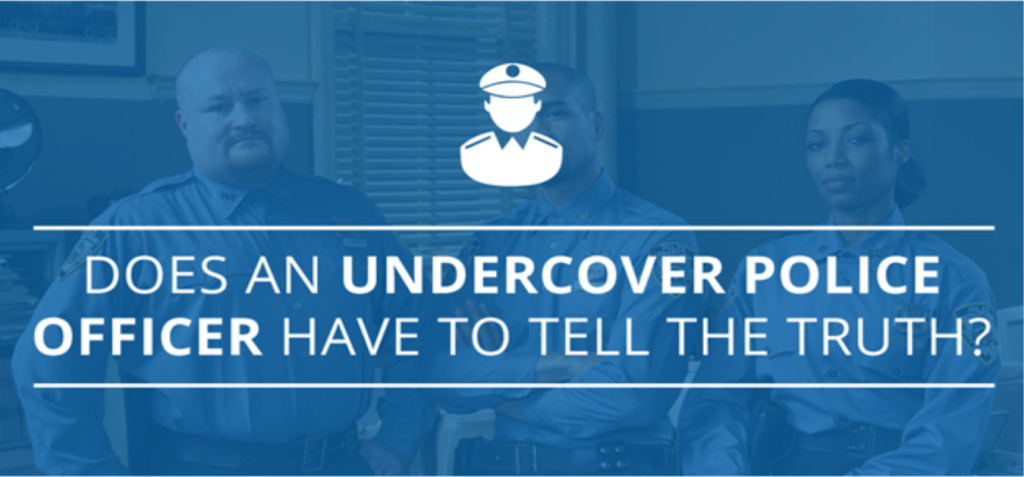
We’ve all seen that scene that pops up every so often in the TV crime dramas or those action-packed cop buddy movies. The detective is undercover, following leads, trying to get clues from anyone he can that will help him locate the criminal he’s after. Eventually, our hero runs into someone who suspects that he’s a police officer.
“Are you a cop?”, he says. “I know the law. If you’re a cop, you have to tell me.”
Is it true, though? Does an undercover police officer have to tell the truth if he’s asked about his real identity? The short answer is no, he doesn’t, but let’s look at where this undying myth comes from along with some of the things that an undercover cop really can or can’t do in the line of duty.
A Myth Based On The Concept Of Police Entrapment
If you think about it logically for a moment, it really would be silly if this common misconception was actually true. If, when asked, a police officer always had to tell you the truth, that he was indeed a police officer, the police would never arrest anyone. Criminals could simply ask everyone they meet if they are a cop and they’d never have to worry about anything. Plain-clothes law enforcement organizations like the FBI couldn’t even exist.
Although the idea that an undercover police officer has to tell the truth is just a myth, that myth is based on the very real concept of police entrapment. Even if an undercover police officer doesn’t necessarily have to be honest with you, there are some things that he can’t do when trying to catch someone committing an illegal act.
Police Entrapment Laws In Kentucky
In the state of Kentucky, police entrapment is defined quite clearly in Kentucky Revised Statutes § 505.010.
Under the law, a person can not be found guilty of an offense if the following two conditions exist:
- He was induced or encouraged to engage in that conduct by a public servant or by a person acting in cooperation with a public servant seeking to obtain evidence against him for the purpose of criminal prosecution.
- At the time of the inducement or encouragement, he was not otherwise disposed to engage in such conduct.
To put it in simpler terms, this means that a person can not be found guilty of a crime if he was convinced to commit that crime by a police officer (or anyone acting in cooperation with the police) as long as the person would not have committed that crime anyway.
For example, if an undercover police officer gave someone a bag of drugs and asked them to sell or deliver it to someone else and then arrested them for drug distribution, this could be entrapment. The person involved got the drugs they allegedly distributed from the police officer. Since they were not in possession of any drugs prior to their interaction with the police officer, they could not have committed this crime on their own.
What Is Not Police Entrapment Under Kentucky Law
§ 505.010 also goes on to explain two specific circumstances that would invalidate the entrapment defense described above.
You can not use entrapment as a defense if a police officer only afforded you the opportunity to commit an offense but did not convince you to do so, or if you are being prosecuted based on an offense that includes physical injury or the threat of physical injury to someone other than the person who would be perpetrating the entrapment.
A perfect example of this would be when an undercover police officer buys drugs from a known dealer to gather evidence. In this case, the police officer is giving the defendant the opportunity to commit an offense but it is something that that person would have done anyway. There was no coercion involved. Entrapment wouldn’t be a viable defense in this case.
Do You Suspect You’ve Been The Victim Of Police Entrapment?
If you’ve been charged with a crime and suspect that you may be a victim of police entrapment, it’s imperative that you contact a knowledgeable Kentucky criminal defense attorney as soon as possible. Fast action is the key to a solid and successful defense.
The team at Baldani Law Group will be behind you with more than 100 years of combined experience working to get the best possible results. Contact us online or call (859) 259-0727 to schedule a free consultation. We’ll happily go over the details of your case and discuss exactly what we can do to help you.